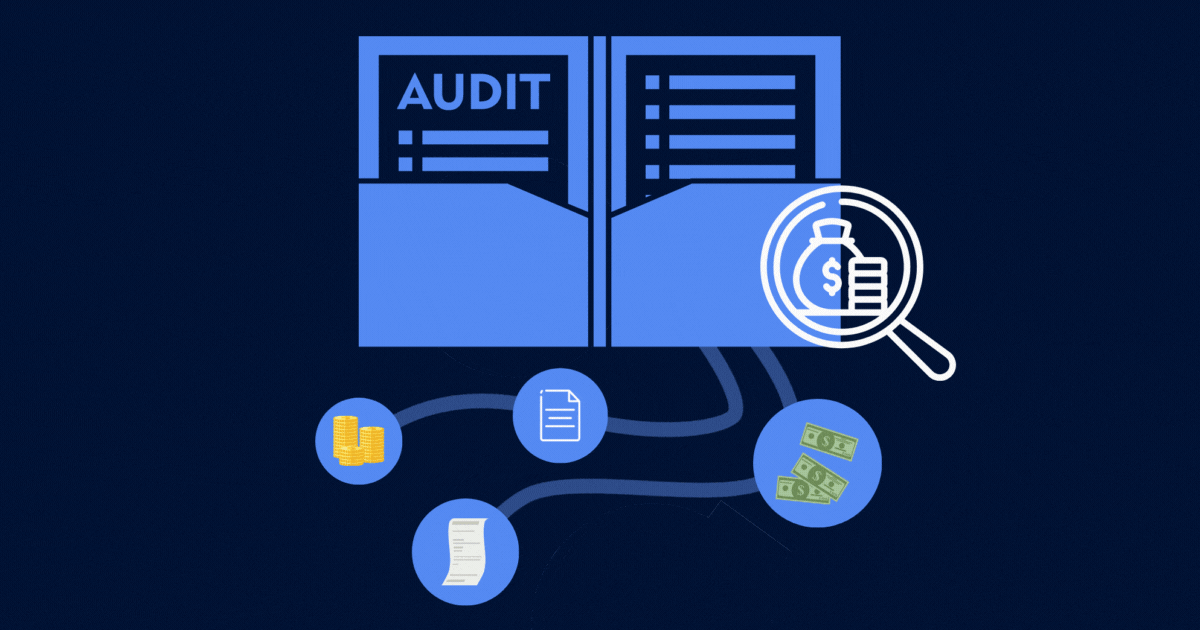
Who has experienced searching for a paper or online document that is needed at the very moment but can't find it amongst the stacks of documents to find the file?
All accounts payable (AP) and accounts receivable (AR) need a proper audit trail, but we have to admit that tedious work like this is often pushed aside to prioritize more urgent tasks. As a result of poor management, it takes forever to locate the documents, wasting a tremendous amount of time in those times of need. Poor audit trails will be like searching for a speck of dust in outer space.
Table of Contents:
- What is an Audit Trail?
- Why is it Essential to Have an Audit Trail?
- How Does Audit Trail Work with a Payment Solution?
- What are the Benefits of Audit Trail using Plooto?
- How Long Should Audit Trails be Maintained?
- How Often Should the Audit Trail be Reviewed?
- Which Industry Requires Audit Trails?
- Best Way to Maintain Audit Trails for Your Business
What is an Audit Trail?
Now, what does an audit trail mean? According to the Cambridge Dictionary, an audit trail is "documents and records that show the history of a company's financial activities." In other words, an audit trail is the trace of all internal records an organization keeps regarding AP and AR, plus any additional financial activities and securing information according to specific standards, like ISO 27001.
Why is it Essential to Have an Audit Trail?
Did you know that by law, it's a mandate for businesses to keep audit trails? Whether the company is in the United States or Canada, an audit trail is mandatory as part of the regulatory compliance for all businesses.
How Does Audit Trail Work with a Payment Solution?
Paper document-based audit trail has been alongside the history of our economy. However, with the evolution of technology, the audit trail has become more peaceful with automation.
A secure cloud-based AP and AR solution like Plooto creates an automatic audit trail of business financial activities. Plooto keeps a complete audit trail of online check payments, recurring payments with PAD (pre-authorized debit) agreement, approved payments, collecting B2B payments, and all other forms of payments. Moreover, audit trails are automatically reconciled back to the accounting software, unifying all records.
What are the Benefits of Audit Trail using Plooto?
Besides complying with the law, using Plooto to automate audit trails have many benefits for the business.
Increase Security – Plooto is certified with ISO 27001, an international standard on managing information security. Moreover, Plooto offers access controls, allowing the audit trail is stored securely and limit access to those with authorization.
Fraud Prevention – Consolidating financial activities to a single platform that provides audit trails will help prevent and reduce internal and external fraud activities. The clear visibility and automatic audit trail generated on financial transactions will increase the difficulty for internal fraudsters to manipulate the system. Plus, it's easier and faster to investigate fraudulent activities as all records are precisely recorded.
Secure with Ease of Access – All audit record is secured on the cloud. Thus, in times of need, it's easy to access and view the audit trail from anywhere at any time. Plus, there is no need to make a trip to the office to search for leftover records, making it optimal for businesses.
Increase Accuracy and Transparency – Plooto automatically creates audit trails for all financial activities, including new payments, approved or received payments, naturally reducing the errors and increasing the accuracy of the audit trails. Moreover, increasing the transparency while removing the manual and mundane process.
Save Cost – Not compiling with the law could cost your business a fortune. Furthermore, it could lead to company closure. Hence, this cost cannot be spoken for. Moreover, having audit trails can help cut costs by having employees allocate time on high-level tasks contributing to revenue growth.
Easy and Accurate Business Financial Analysis – A complete and accurate audit trail allows faster and accurate business financial analysis to help determine where businesses can prevent unnecessary money from flowing out of the company.
How Long Should an Audit Trail be Maintained?
All audit trails and associated documents for the business should be preserved for as long as it satisfies regulatory requirements. The government can request the company to provide the full audit trails the year after the tax is filed. Thus, having everything stored in a cloud-based solution makes this process easier.
How Often Should an Audit Trail be Reviewed?
Unless the business falls under a specific industry requiring a regulatory audit on a bi-annual or annual basis, there is no fixed timeframe that the audit trail must be reviewed. However, the National Institute of Standards and Technology (NIST) recommends that a periodic review with a set timeframe is appropriate. Likely, establishing a duration that works best for your business is ideal as it can prevent disrupting business operations while ensuring the company's financial security.
Which Industry Requires an Audit Trail?
All industries require financial audit trails. Here are few industries that heavily benefit from automated audit trails:
- Financial Services
- Manufacturing
- E-Commerce
- Health Care Services and Providers
Best Way to Maintain Audit Trails for Your Business
Audit trails are crucial for operating a business and automating using a cloud-based payments solution like Plooto is beneficial for all companies on many levels. Experience how an affordable and powerful payment solution like Plooto can empower your business with a  .
.













